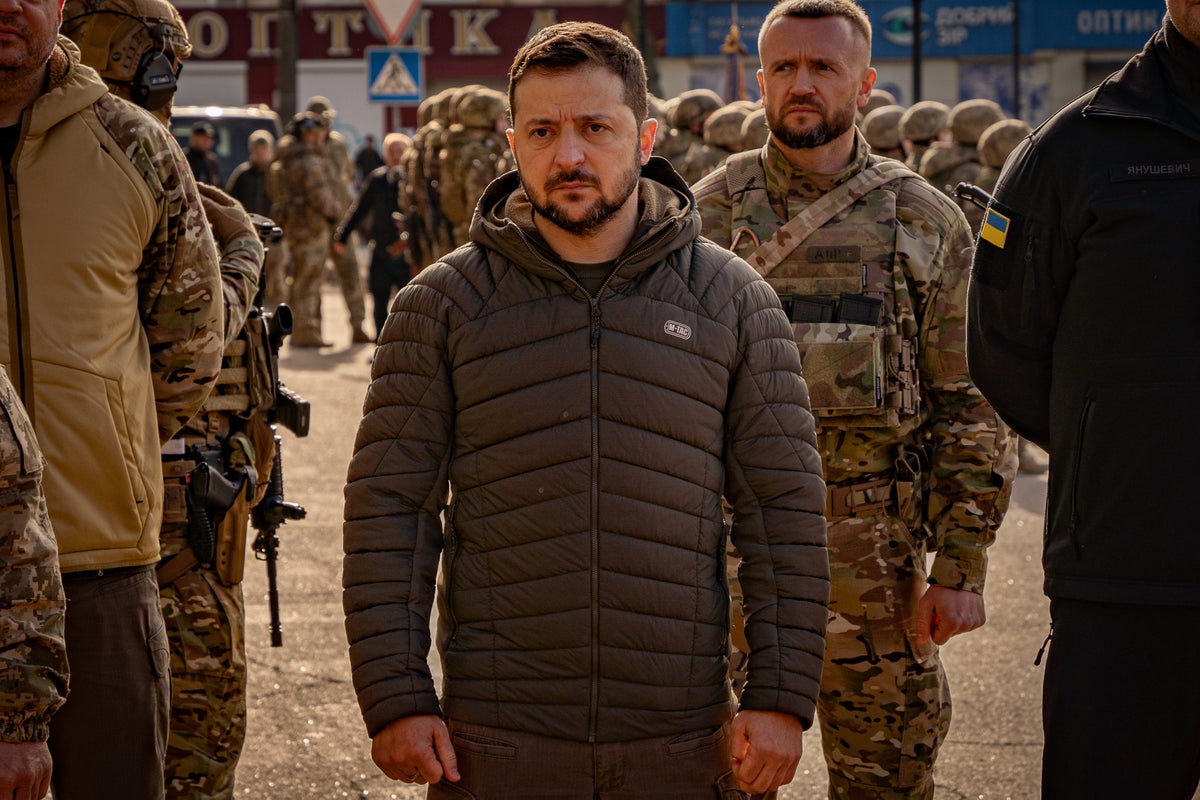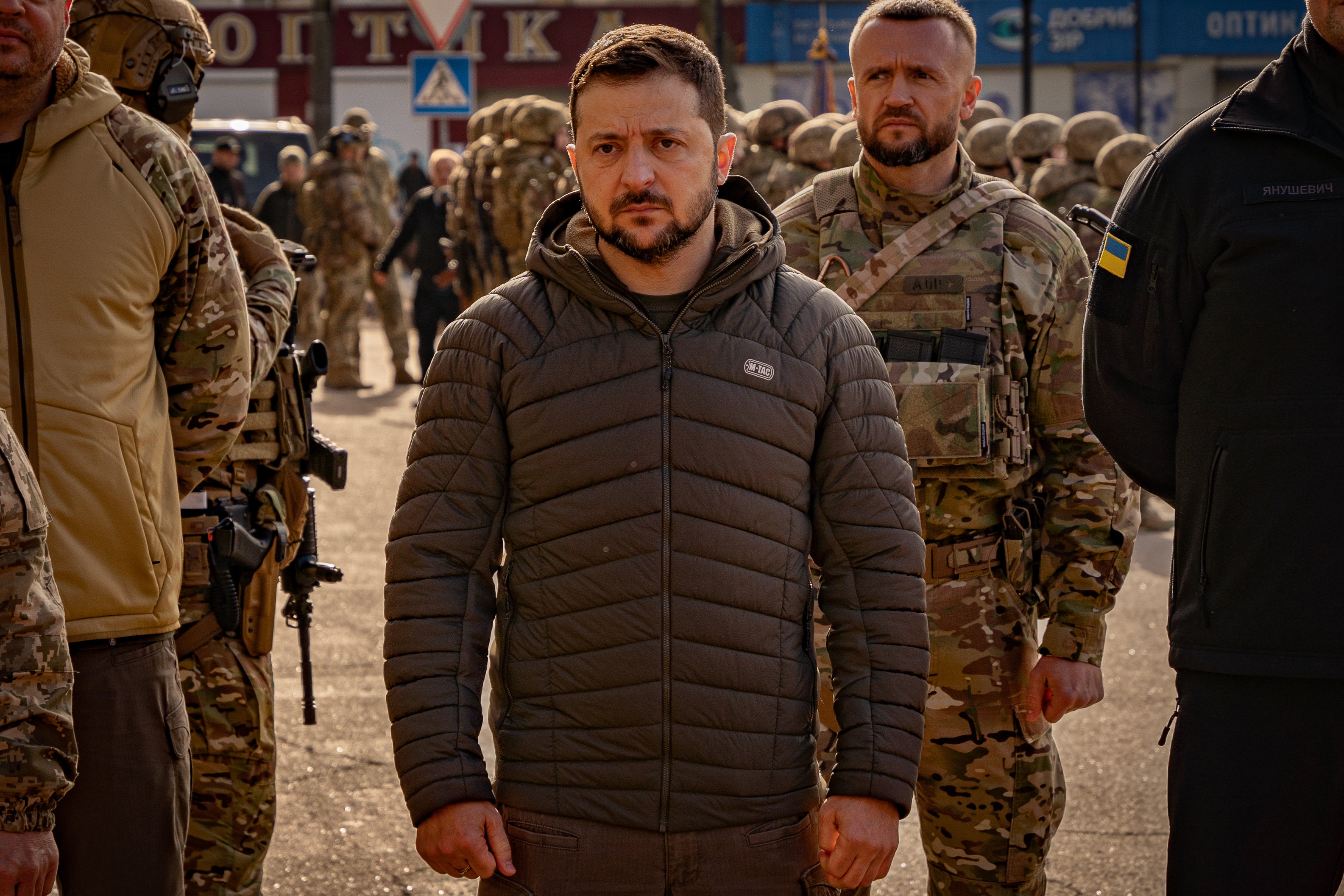
Russia will not “calm down” in its brutal assault on Ukraine until it has run out of missiles, president Volodymyr Zelensky has warned as fierce fighting continued across the country.
Mr Zelenksy told Ukrainians to prepare for more cold and darkness in the months ahead as Moscow carries out a sustained assault on his country’s energy infrastructure.
The president said that “the terrorists are planning new strikes”.
“We know this for a fact,” he added in an overnight video address on Monday. “And as long as they have missiles, they, unfortunately, will not calm down.”
It came as Russian forces shelled 30 settlements in Ukraine’s southern Kherson region 258 times in the past week, Mr Zelensky said.
Ukraine’s military said Russia also kept up heavy shelling of key targets Bakhmut and Avdiivka in Donetsk province, and to the north bombarded Kupiansk and Lyman, both recaptured recently by Kyiv.
Despite the threat of energy blackouts, Kyiv said it plans to put up Christmas trees, without lights, throughout the battered city in a defiant display of holiday spirit.
Mr Zelensky’s comments came ahead of a Nato meeting in Bucharest, Romania, where the military alliance again reaffirmed its support for Kyiv and called on partners to pledge more aid for Ukraine heading into the winter.
Jens Stoltenberg, Nato’s secretary-general, said the alliance would stand with Ukraine for as “long as it takes”. “We will not back down," Mr Stoltenberg said.

Mr Zelensky’s comments came ahead of a Nato meeting in Bucharest, Romania where the alliance reiterated its support for Ukraine.
"The main focus is supporting Ukraine and ensuring Putin doesn’t win," he said, adding that the only way to get the right terms for a negotiation to begin would be for Ukraine to advance on the battlefield.
NATO foreign ministers meeting in Bucharest are focusing on ramping up military assistance for Ukraine such as air defence systems and ammunition, even as diplomats acknowledge supply and capacity issues, but also discuss non-lethal aid as well.
Part of this non-lethal aid - goods such as fuel, medical supplies, winter equipment and drone jammers - has been delivered through a NATO assistance package that allies can contribute to and which Stoltenberg aims to increase.







